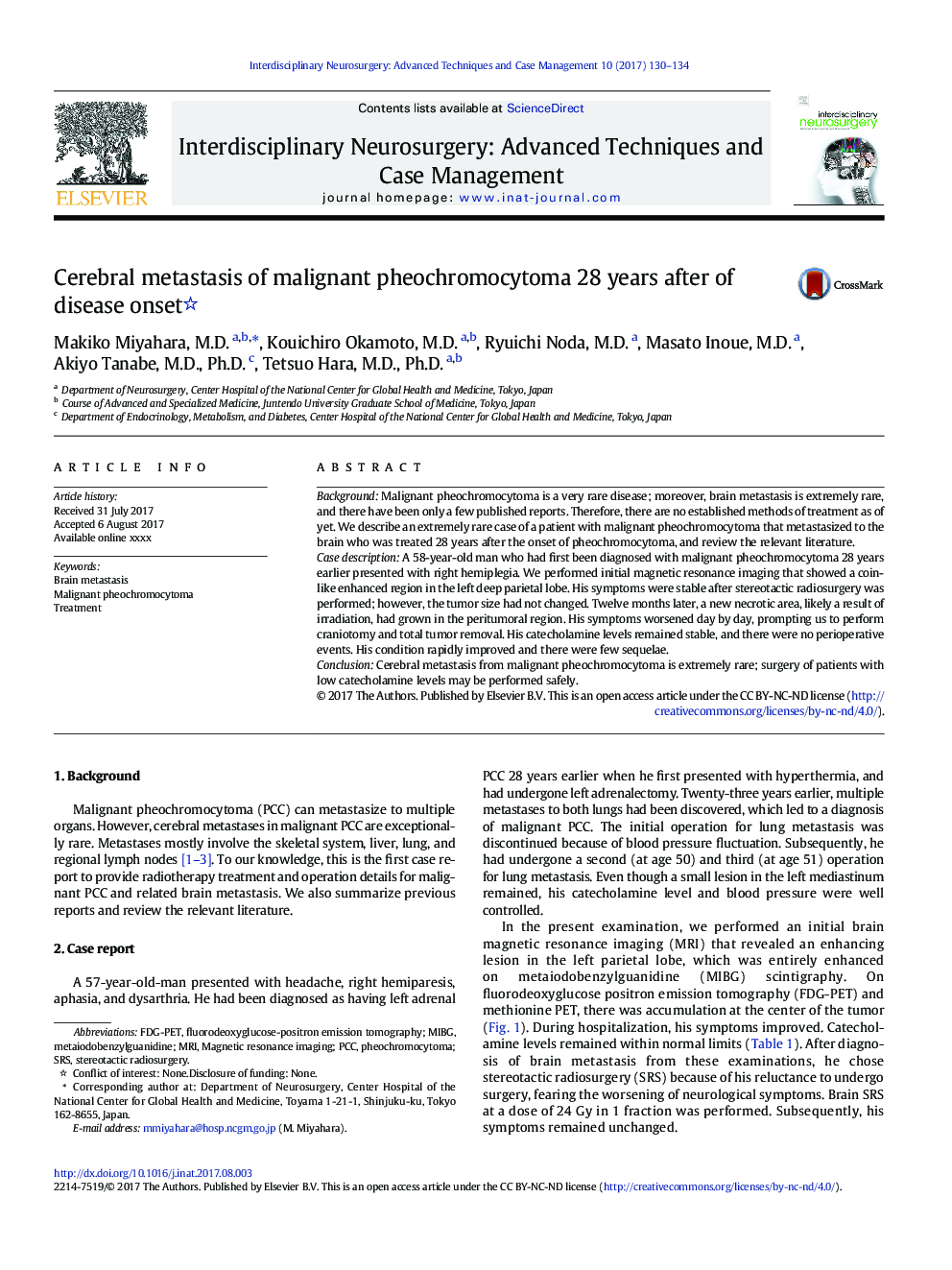| Article ID | Journal | Published Year | Pages | File Type |
|---|---|---|---|---|
| 5629403 | Interdisciplinary Neurosurgery | 2017 | 5 Pages |
â¢Bain metastasis of malignant PCC is extremely rare. Therefore, the treatment and outcomes are uncertain.â¢We performed stereotactic radiosurgery and craniotomy for this case.â¢This case illustrates that if adequate preparation are performed beforehand, those treatment is possible without problems.
BackgroundMalignant pheochromocytoma is a very rare disease; moreover, brain metastasis is extremely rare, and there have been only a few published reports. Therefore, there are no established methods of treatment as of yet. We describe an extremely rare case of a patient with malignant pheochromocytoma that metastasized to the brain who was treated 28Â years after the onset of pheochromocytoma, and review the relevant literature.Case descriptionA 58-year-old man who had first been diagnosed with malignant pheochromocytoma 28Â years earlier presented with right hemiplegia. We performed initial magnetic resonance imaging that showed a coin-like enhanced region in the left deep parietal lobe. His symptoms were stable after stereotactic radiosurgery was performed; however, the tumor size had not changed. Twelve months later, a new necrotic area, likely a result of irradiation, had grown in the peritumoral region. His symptoms worsened day by day, prompting us to perform craniotomy and total tumor removal. His catecholamine levels remained stable, and there were no perioperative events. His condition rapidly improved and there were few sequelae.ConclusionCerebral metastasis from malignant pheochromocytoma is extremely rare; surgery of patients with low catecholamine levels may be performed safely.
